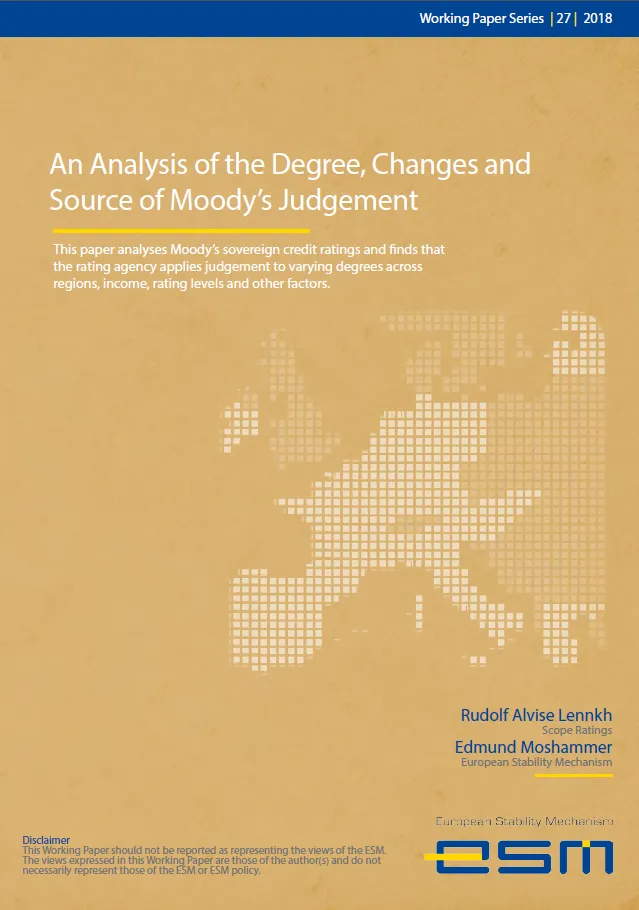Sovereign Ratings: An Analysis of the Degree, Changes and Source of Moody’s Judgement

Download PDF: Working Paper 27
This paper analyses Moody’s sovereign credit ratings and finds that the rating agency applies judgement to varying degrees across regions, income, rating levels and other factors
Authors: Rudolf Alvise Lennkh and Edmund Moshammer (European Stability Mechanism)
Abstract:
This paper studies the sovereign ratings of 74 countries from 2003 to 2016, disentangling rating drivers into a ‘fundamental’ and ‘judgement’ component based on Moody’s methodology. We show that the agency applies judgement inconsistently across regions, income, rating levels and factors, time and the direction of rating changes. While downgrades are significantly linked to contemporaneous negative fundamental developments, such as weakening public finances, for upgrades we find evidence of a lagged or ‘catching-up’ effect. Out of the 29 tested explanatory variables, judgement applied by the rating committee is best explained through government bond yields, real GDP growth, the debt trend and interest payments relative to revenues.
Disclaimer: This Working Paper should not be reported as representing the views of the ESM. The views expressed in this Working Paper are those of the authors and do not necessarily represent those of the ESM or ESM policy. No responsibility or liability is accepted by the ESM in relation to the accuracy or completeness of the information, including any data sets, presented in this Working Paper.
JEL codes: F34, G15, G24, H63